Aurorasound VIDA Supreme phono preamplifier
.jpg?KeepThis=true&TB_iframe=true&height=430&width=700)
 In August 2015, I reviewed the excellent sounding Aurorasound VIDA (Vinyl Disk Amplifier) phono preamplifier from Aurorasound. It is their first product, and more importantly, it doesn’t cost an arm and a leg. The VIDA is an outstanding accomplishment at its price point. I immensely enjoyed my vinyl collection with the VIDA, as it provided excitement in all types of musical genres. So much, I awarded VIDA as my Stereotimes “Most Wanted Component.”
In August 2015, I reviewed the excellent sounding Aurorasound VIDA (Vinyl Disk Amplifier) phono preamplifier from Aurorasound. It is their first product, and more importantly, it doesn’t cost an arm and a leg. The VIDA is an outstanding accomplishment at its price point. I immensely enjoyed my vinyl collection with the VIDA, as it provided excitement in all types of musical genres. So much, I awarded VIDA as my Stereotimes “Most Wanted Component.”
Alfred Kainz of Highend-electronics, USA distributor of the Aurorasound, contacted me last year and asked if I could review the new reference Aurorasound VIDA Supreme phono preamplifier. I enthusiastically told him, “Yes, I’d love to!”
Wow, how fast time flies! It seemed like yesterday when I rewarded myself with an analog setup for my 50th birthday. Since then, I’ve pushed my analog front-end to new heights over the years, which is very satisfying. I am very privileged to have acquired the superb- sounding Dohmann Helix 1 turntable, Frank Schroder’s CB tonearm, an Etsuru Urushi cartridge, the Thrax Audio Orpheus phono preamplifier, and the Thrax Audio Trajin step-up transformer as my analog playback reference. The sound is simply magical. I now appreciate analog sound more than ever.
 The Aurorasound VIDA Supreme phono preamplifier uses a state of the art semiconductor design (LCR- type network), innovative technology and a modular design combined with old-world craftsmanship which has surpassed their highly praised original VIDA phono preamp. LCR stands for L=Inductor (transformer), C=capacitor, and R=resistor. These components are an RIAA filter to make equalizing the RIAA curve signal to flat. Most phono preamplifiers use C and R’s only, not the L. This is because the L is a costly part, and it is not easy to keep the same value of inductance factors in mass production. Lundahl, a Swedish professional audio transformer manufacturer, custom makes them for Aurorasound. Brilliantly, the Supreme features two plug-in modules for matching various kinds of cartridges. My review sample came with a plug-in module that perfectly matched my Etsuru Urushi cartridge and worked flawlessly. The Supreme utilizes only top-notch components. A Newly developed amplifier module using Japanese discrete transistors and FET is used. It uses a large capacity medical-grade toroidal transformer for power supply, and Japan made audio grade oxide film resistors, with a 1% error rate and electrolytic capacitors, which are very stable and have a long life span. There are also high-quality relay switches for all signal path switching and high-quality polypropylene film capacitors from Germany.
The Aurorasound VIDA Supreme phono preamplifier uses a state of the art semiconductor design (LCR- type network), innovative technology and a modular design combined with old-world craftsmanship which has surpassed their highly praised original VIDA phono preamp. LCR stands for L=Inductor (transformer), C=capacitor, and R=resistor. These components are an RIAA filter to make equalizing the RIAA curve signal to flat. Most phono preamplifiers use C and R’s only, not the L. This is because the L is a costly part, and it is not easy to keep the same value of inductance factors in mass production. Lundahl, a Swedish professional audio transformer manufacturer, custom makes them for Aurorasound. Brilliantly, the Supreme features two plug-in modules for matching various kinds of cartridges. My review sample came with a plug-in module that perfectly matched my Etsuru Urushi cartridge and worked flawlessly. The Supreme utilizes only top-notch components. A Newly developed amplifier module using Japanese discrete transistors and FET is used. It uses a large capacity medical-grade toroidal transformer for power supply, and Japan made audio grade oxide film resistors, with a 1% error rate and electrolytic capacitors, which are very stable and have a long life span. There are also high-quality relay switches for all signal path switching and high-quality polypropylene film capacitors from Germany.

.jpg?KeepThis=true&TB_iframe=true&height=430&width=700)
The VIDA Supreme arrived in a large-sized heavy-duty carton.
The control unit and the separate power supply were securely packed. Both the control unit and the power supply were very robust and quite heavy. 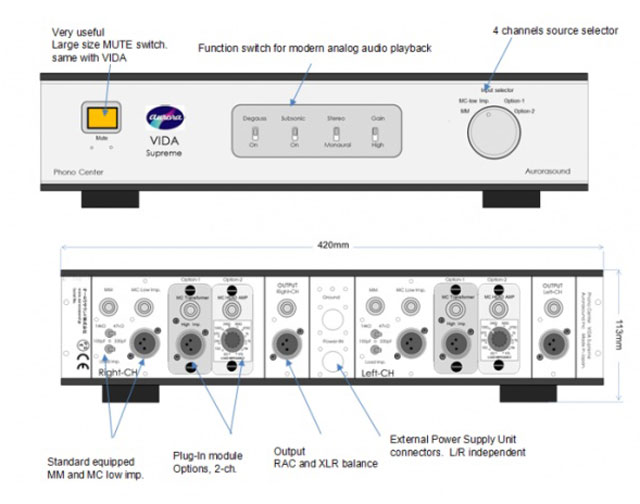
It features a solid aluminum chassis and is equipped with carbon foot insulators. The build quality is of a very high standard, with well thought out controls, and it features exceptional fit and finish. The front panel is well designed; there’s a nice big orange square mute button on the left side; to the right, there’s a rotary dial and an input selector with four options: MM, MC-Low imp, Option-1, and Option-2. In the middle, there are four toggle switches: A cartridge degauss, Subsonic filter, and Stereo/Mono and Gain. On the back of the VIDA Supreme, there is one set of RCA outputs and one XLR output and an RCA input, XLR input for MC and RCA input for MM, and two options of plug-in modules for matching with various kinds of cartridges. In the middle, there are ground and power supply input cables to be connected to the power supply.
Kainz told me that the VIDA Supreme required about 100 hours of burn-in for optimum sound. My review sample was partially burned-in by Kainz so that I didn’t have to burn-in completely. Nonetheless, I let the unit cook for the first 50 hours or so. The sound was illuminating. I could tell immediately the Supreme was quite special. I didn’t have a VIDA for a direct comparison with the Supreme. Still, I could tell right away that Supreme was in a different league.
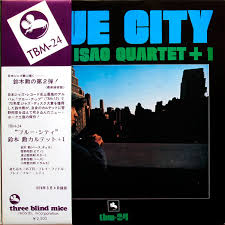 The first record up was the Blue City by the Isao Suzuki quartet (PAP-20015 TBM-24). The Supreme’s speed, transparency, and frequency extension were exceptional. Its ability to reproduce timbre and detail was equally outstanding, and its dynamic presentation at both ends of the scale was nothing short of excellent. The aural images and the solidity of the soundstage were second to none. Its bass extension, control, and weight were solid. Incredibly, this recording is almost fifty years old. Tetsujiro Obara’s shimmering cymbal work was mesmerizing with transparency, detail, openness, and sheen. The double bass produced a stunning low throb and full-scale image with weight and authority that was remarkably tangible as if Isao Suzuki were in my listening room. Kunihiko Sugano’s piano work was excellent, and Kazumi Watanabe’s guitar flowed effortlessly. Isao Suzuki’s quartet was in perfect harmony; it was music to my ears.
The first record up was the Blue City by the Isao Suzuki quartet (PAP-20015 TBM-24). The Supreme’s speed, transparency, and frequency extension were exceptional. Its ability to reproduce timbre and detail was equally outstanding, and its dynamic presentation at both ends of the scale was nothing short of excellent. The aural images and the solidity of the soundstage were second to none. Its bass extension, control, and weight were solid. Incredibly, this recording is almost fifty years old. Tetsujiro Obara’s shimmering cymbal work was mesmerizing with transparency, detail, openness, and sheen. The double bass produced a stunning low throb and full-scale image with weight and authority that was remarkably tangible as if Isao Suzuki were in my listening room. Kunihiko Sugano’s piano work was excellent, and Kazumi Watanabe’s guitar flowed effortlessly. Isao Suzuki’s quartet was in perfect harmony; it was music to my ears.
The Supreme’s handling of Classical music was delightful. It didn’t matter whether I played intimate chamber music or powerful concertos or symphonies. One Saturday afternoon, I listened to one of my favorite violinists, Ann-Sophie Mutter, on Pablo De Sarasate’s Carmen Fantasie op. 25 (DG 437 544-1). Ann- Sophie Mutter’s performance was simply breathtaking. Her virtuosity was rendered delicately as well as powerfully with a lot of vocal drama. In a word, it was thrilling.
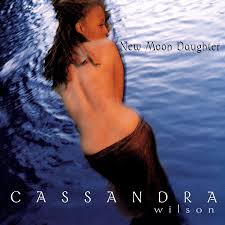
Supreme’s ability to retrieve and resolve instruments is top-notch, revealing layers of the small detail and nuance without sounding bright, etched, or hyper-detailed. However, to be supercritical, it was a touch less warm and tubie than my Thrax Orpheus. Don’t get me wrong, I could easily live with the Supreme; at this level, it comes down to personal taste. I love tubes, and let’s not forget, the Orpheus is almost twice the price admission. Dynamically, the Supreme was unrestrained. It delivers powerful dynamics with great ease and complete authority and competes with the very best.
One evening I was in the mood for a female vocalist. I had to put on Cassandra Wilson, and her fabulous recording of Love is Blindness from her “New Moon Daughter” (PPAN BST32861). The Supreme put me in a hypnotic state. From the very first sound of her voice, it was hair-raising. The Supreme has an ethereal way of transporting music with convincing realism. First, I was stunned by the immediacy and solidity of her voice, then by the complexity of Cassandra’s phrasing. The Supreme provides a proper sense of weight and resilience to the music.

Living with the Aurorasound VIDA Supreme phono preamplifier has been exhilarating; it’s a superb phono preamplifier that can easily compete with products at twice the price. The Supreme has an uncanny ability to put me in my listening chair for hours and hours at a time. It didn’t matter what genres Jazz, vocals, or classical music. All were rewarding. This is a beautiful piece of equipment, impeccably engineered, and exceptionally satisfying. The Aurorasound Vida Supreme phono preamplifier is my “Most Wanted Component Of The Decade” award winner. Highly recommended!


key kim
Specification: Aurorasound VIDA Supreme phono preamplifier
Price: $12,790.00
US Importer: Highend-electronics, Inc.
Alfred Kainz
19593 Roanoke Road
Apple Valley, CA 92307
Phone: 760-490-2410
Fax: 760-242-1065
eMail: office@highend-electronics.com
PayPal: paypal@highend-electronics.com
Stereo Times Masthead
Publisher/Founder
Clement Perry
Editor
Dave Thomas
Senior Editors
Frank Alles, Mike Girardi, Russell Lichter, Terry London, Moreno Mitchell, Paul Szabady, Bill Wells, Mike Wright, and Stephen Yan,
Current Contributors
David Abramson, Tim Barrall, Dave Allison, Ron Cook, Lewis Dardick, John Hoffman, Dan Secula, Don Shaulis, Greg Simmons, Eric Teh, Greg Voth, Richard Willie, Ed Van Winkle, Rob Dockery, Richard Doran, and Daveed Turek
Site Management Clement Perry
Ad Designer: Martin Perry


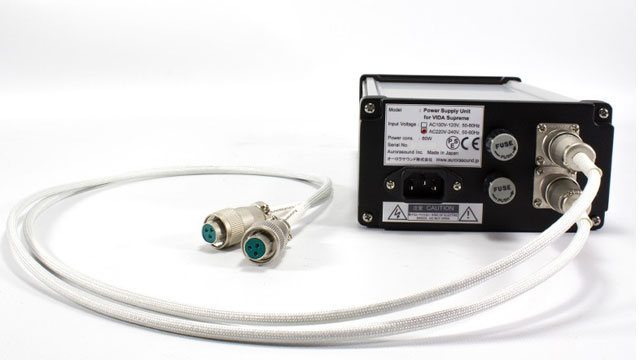

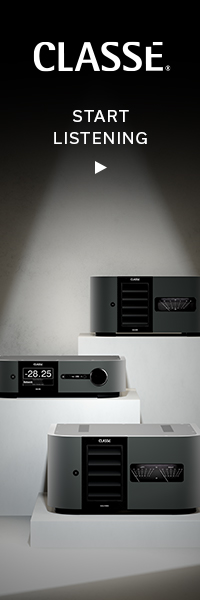
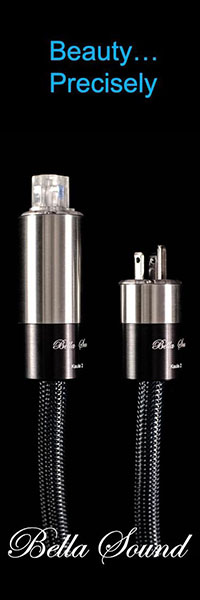
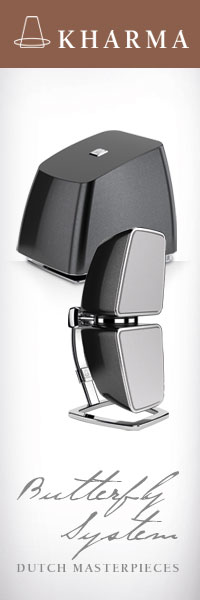
Be the first to comment on: Aurorasound VIDA Supreme phono preamplifier